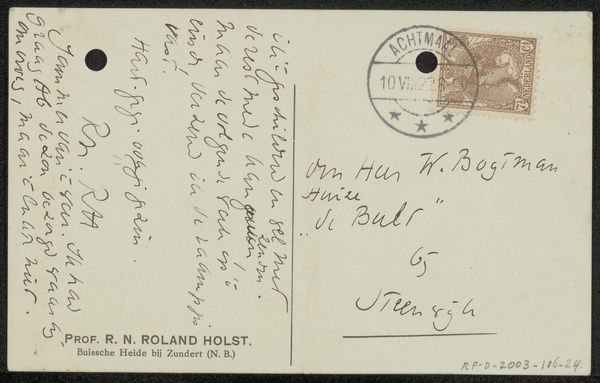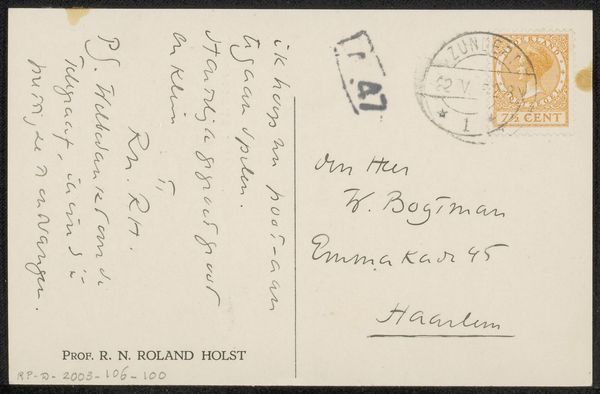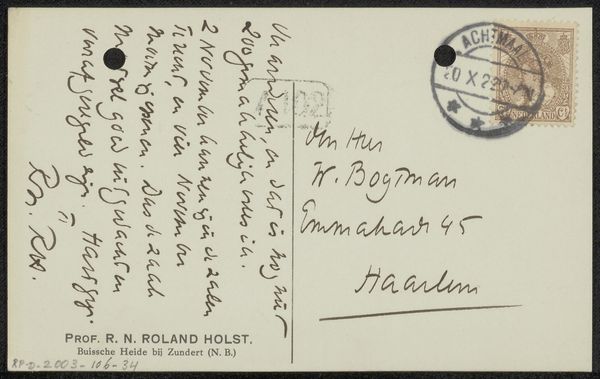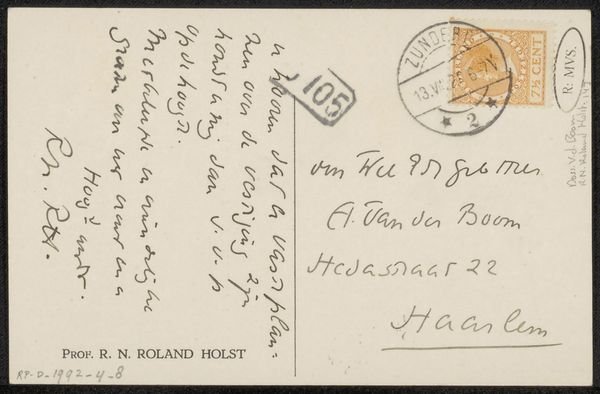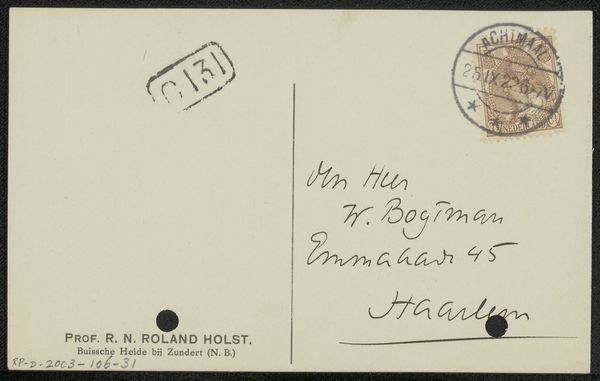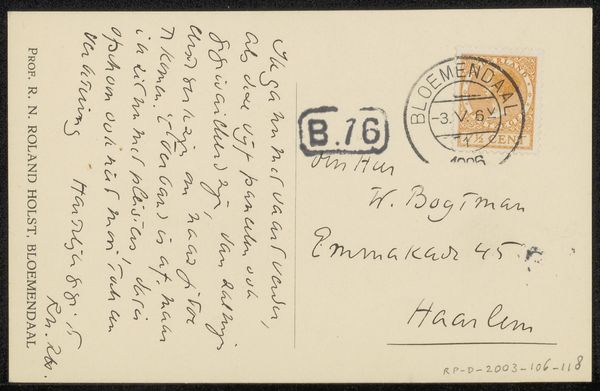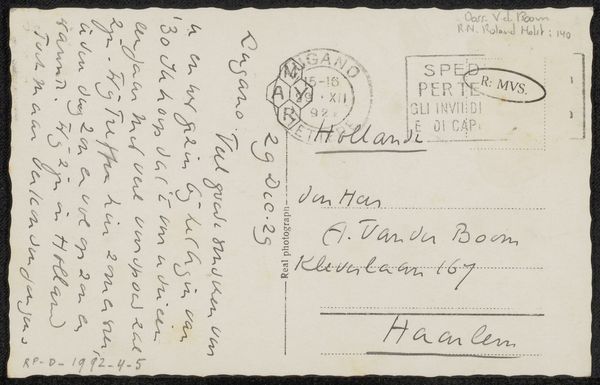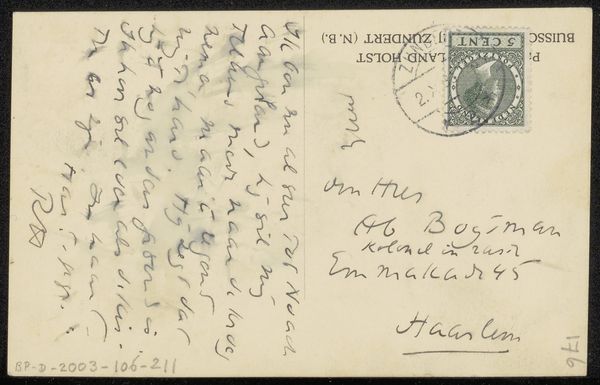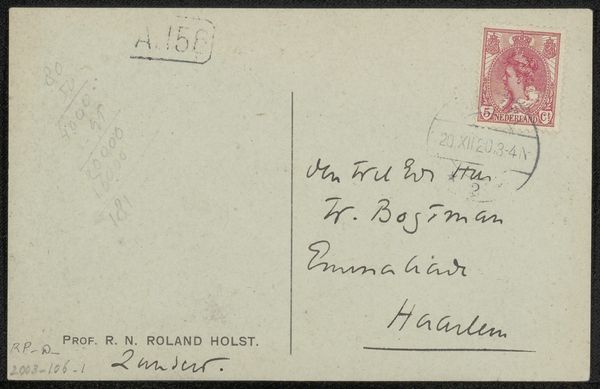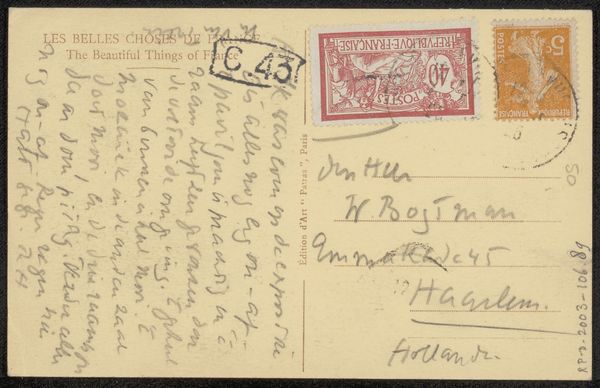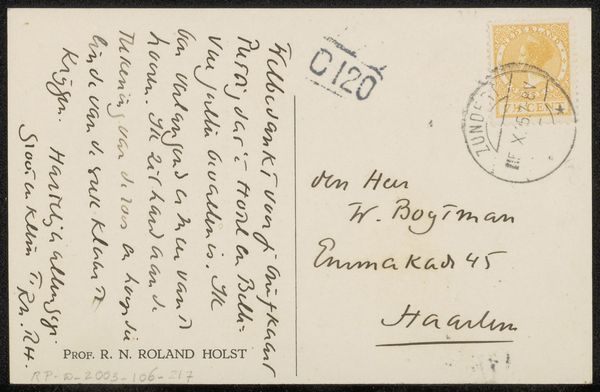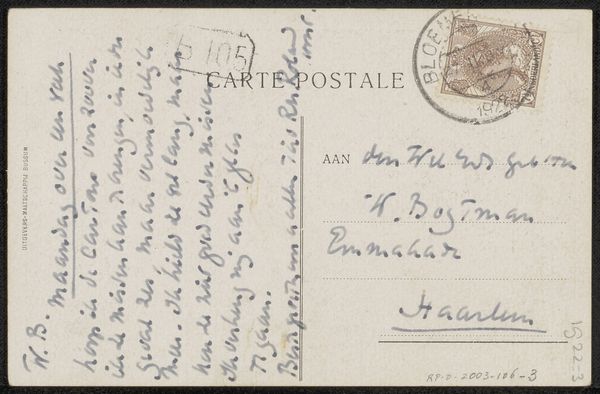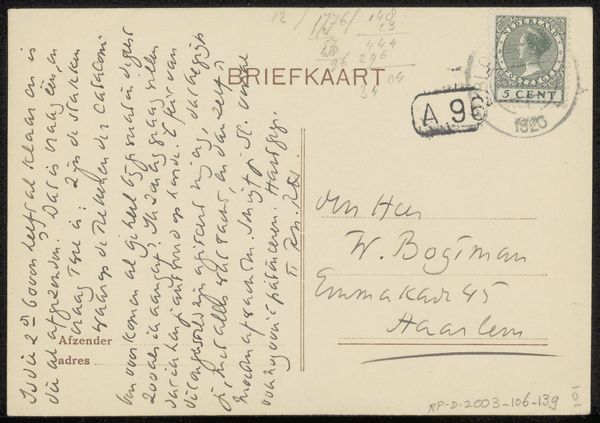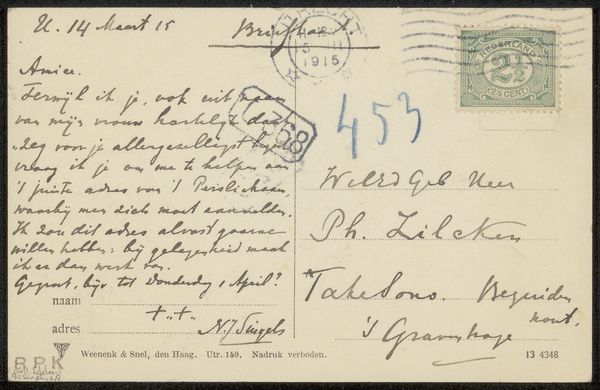
drawing, ink, pen
#
drawing
#
hand-lettering
#
hand drawn type
#
hand lettering
#
personal sketchbook
#
ink
#
hand-drawn typeface
#
ink drawing experimentation
#
pen-ink sketch
#
pen work
#
sketchbook drawing
#
pen
#
sketchbook art
#
calligraphy
Copyright: Rijks Museum: Open Domain
Editor: Here we have Richard Nicolaüs Roland Holst’s “Briefkaart aan Willem Bogtman,” a postcard drawn with pen and ink sometime before 1927. What strikes me is the personal nature of it, like peeking into a private conversation. What do you see in this piece? Curator: It is intimate, isn’t it? It's more than just a quick note; the carefully rendered lettering transforms simple correspondence into a symbolic artifact. Notice the almost ceremonial quality to the handwriting; how does it strike you? Editor: It feels intentional, almost artistic in its construction. It's functional as a message, but elevated. It's like the writing *itself* is part of the message, not just the words. Curator: Precisely! The text becomes an image. Consider how calligraphy has often functioned across cultures, carrying layers of cultural meaning. This postcard elevates the everyday through that symbolic lens. Editor: So it's not just what the postcard *says,* but how it visually communicates? It is almost devotional in its meticulous script! I hadn't considered how the script's formality gives the postcard its weight. Curator: Absolutely. The visual language and symbolism elevate the postcard to an object imbued with a distinct weight. It reveals, perhaps, the unspoken respect, or intimacy between Holst and Bogtman, embedding shared cultural values. Editor: I see it now, that interplay. It's a fascinating example of how even the simplest object can become rich with meaning through artistic intention. Curator: Indeed. Roland Holst turns the fleeting message into a testament to the power of symbolic communication. We've seen how handwriting itself can be read as an expression of self.
Comments
No comments
Be the first to comment and join the conversation on the ultimate creative platform.
